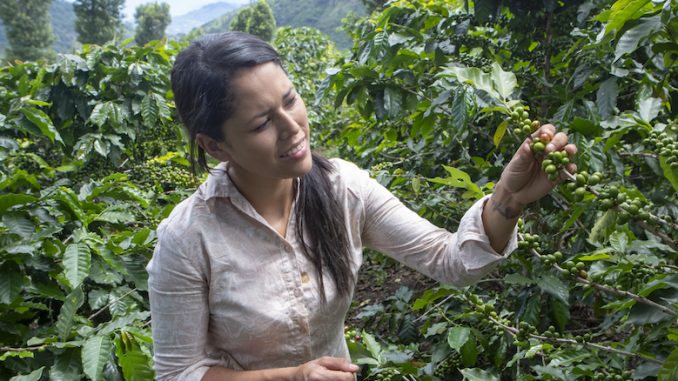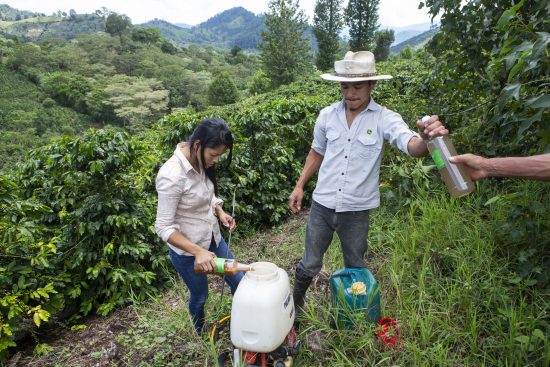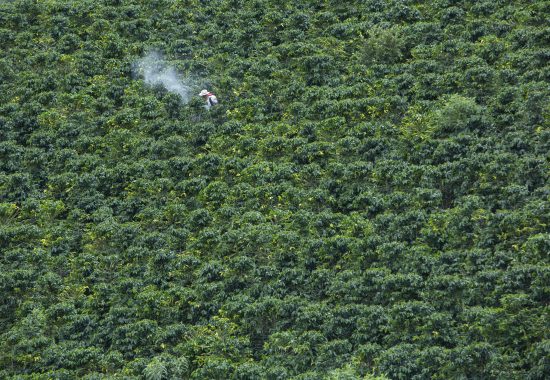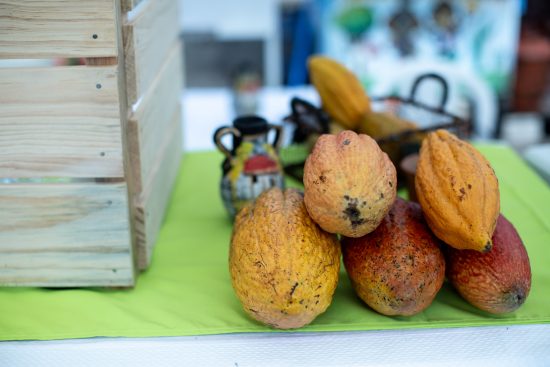
Longtime tech innovator IBM partners with agricultural nonprofits including Heifer International to offer blockchain data tracking for the coffee and cocoa industries.
BY KATRINA YENTCH
BARISTA MAGAZINE ONLINE
Photos courtesy of Heifer International
As digitized information continues to grow, methods like blockchain technology have found their way into the agricultural world. In this case, the latest solution offers ways for coffee and cocoa farmers to store various types of data in order to make wise business decisions and improve transactions.

Global tech company IBM has partnered with the agricultural nonprofits Heifer International and CATIE (Tropical Agricultural Research and Higher Education Center) to engineer IBM Food Trust and the Watson Decision Platform for Agriculture. These two platforms are backed by artificial intelligence, IoT, and blockchain tech-powered solutions, which intend to equip farmers of both coffee and cocoa with ways to better predict weather patterns, process certifications, and much more. In doing this, the parties hope to provide better transparency of the supply chain for farmers and help them create better pricing of their products.
The current beta testers of these innovations include coffee farmers of the COPRANIL cooperative and cocoa farmers who are part of Heifer’s Chocolate4All campaign. “For 18 months, we’ve worked alongside farmers to identify the best ways to improve production processes, digitize the value chain, and ultimately open market access to smallholder farmers so they can secure premium prices,” said Heifer’s VP of financial innovation, Jesús Pizarro, in a press release. “As one of the first cooperatives in the world to deploy the system, COPRANIL is leading the way, equipping its farmers with the tools and technology they need to build and sustain profitable farm businesses.”

Some ways IBM Food Trust establishes transparency is by helping farmers trace coffee and cocoa beans from “crop to cup,” essentially. Through blockchain technology, users with granted access will sign onto the Food Trust platform to access data. Some of this data is provided by Heifer International, which will offer info about nurse plants shipped to farmers. After harvest, farmers will also provide their own crucial data for the cooperative COPRANIL to look at.
During this time, additional data is uploaded to the blockchain, ultimately with crucial details like processing and roasting, or whether or not something is fair trade and organic. In turn, corporate buyers can then access this to truly understand the justifiable cost of a certain product.
Similarly, the Watson Decision Platform is kind of like a real-life version of Farmville, for those of you who remember the iconic farming Facebook game. It uses AI technology to provide “geospatial, weather, environmental and IoT field data” in a dashboard personalized to a farmer’s land. As a result, farmers and agribusinesses can make better decisions about improving crop yield and value, along with food safety and sustainability.

“Our work with Heifer International and COPRANIL is an important test of how AI and blockchain technology can advance social good and support sustainability by helping even small-scale producers,” said Kareem Yusuf, Ph.D., IBM general manager AI applications and blockchain. “With predictive AI working to help increase crop yield, and blockchain establishing a record of provenance and proof of quality, these farmers are empowered with new data and insights so they can command more at market.”

